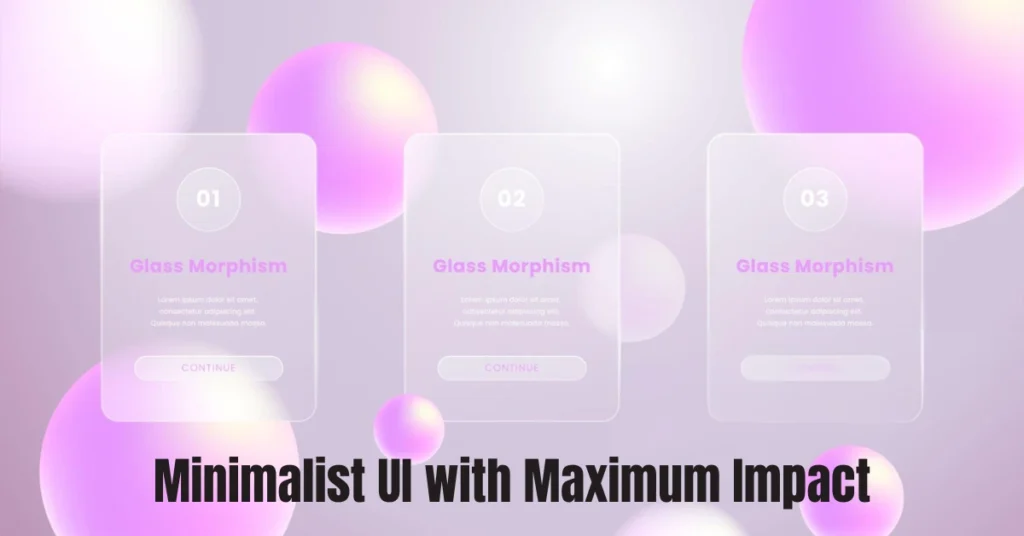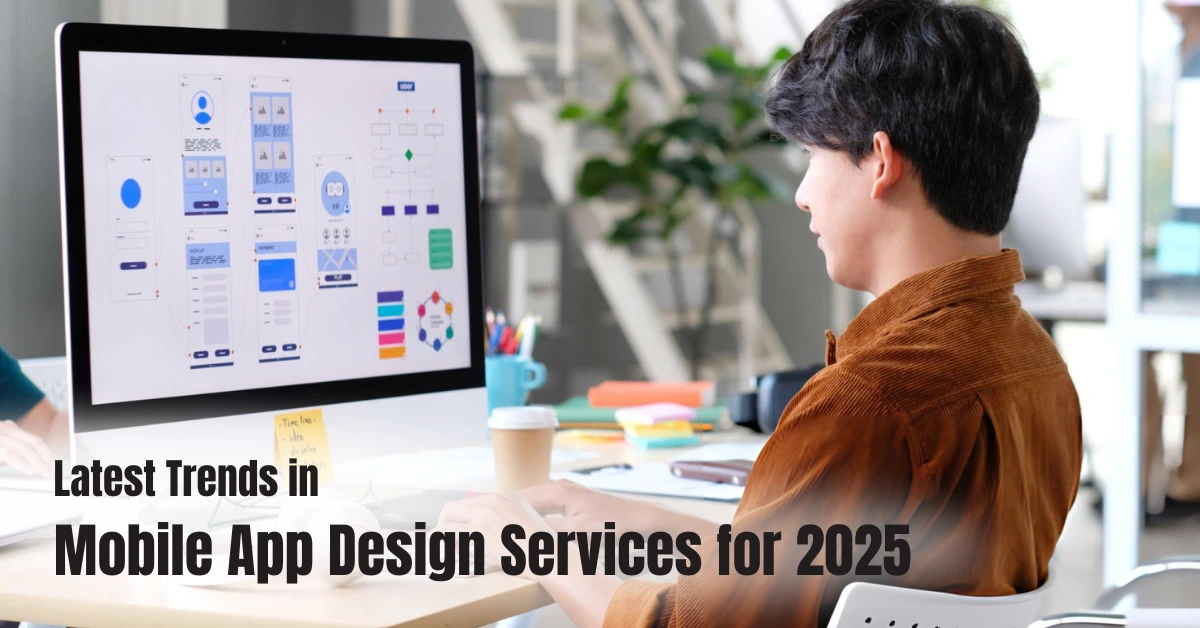Mobile App Design Services are transforming fast, and 2025 is no exception. The landscape is being reshaped by everything from minimalist interfaces to lightning-fast 5G-powered features and, yes, even the eco-friendly design choices that make you feel a bit better about your digital carbon footprint. This blog is your guide to what’s hot and what’s next in App Development Services.
Minimalist UI with Maximum Impact
Users expect nothing less than apps that are both visually stunning and brutally efficient. Companies like Virtual Oplossing are pushing boundaries to create apps that are not only fast and secure but also intuitive enough that you don’t have to break your head over how to navigate them.

We’re not talking about just white backgrounds and simple icons. The new minimalist trend focuses on content-first experiences—meaning fewer distractions, better readability, and more focus on what really matters.
- Example: Google Keep. It’s simple, clean, and lets users take notes without unnecessary clutter.
- Another one? Instagram. They stripped down their interface over the years to make the feed the hero.
Less is more—when done right.
Also Read, The Future of Mobile App Development: A Beginner’s Guide
AI-Driven Personalization: The Smarter, the Better
No one likes feeling like a cog in a machine. Enter AI-driven personalization—a trend that’s reshaping Custom App Development by tailoring the experience specifically to you.
Picture this: You open your favorite shopping app, and based on your past purchases, browsing habits, and even the time of day, the app immediately serves you with the products you’re most likely to love.
- Example: Netflix and Spotify use AI to recommend content based on your preferences. Its smart algorithms not only suggest shows based on your viewing history but also tweak the thumbnails and interface elements to keep you engaged.
- Fitness apps like MyFitnessPal adjust diet and workout plans dynamically. It’s smart, it’s efficient, and it’s exactly what modern users expect from Mobile App Design Services.
Also Read, Mobile Application Design Trends You Need to Know in 2025
Dark Mode, Voice, and Gesture-Based Navigation: A User-First Approach
People love dark mode—it’s easier on the eyes, saves battery, and looks sleek. But 2025 takes it further with adaptive themes.
Apps now auto-adjust colors based on:
- Time of day (e.g., lighter themes in the morning, darker at night)
- Surrounding light levels (just like auto-brightness on phones)
- User preferences (more options beyond just ‘light’ or ‘dark’)
If you’re tired of tapping tiny buttons on your screen, you’re not alone. App Development Services are rapidly adopting gesture-based navigation, allowing users to interact with their apps through intuitive swipes, pinches, and taps.
For example, many of the latest Custom App Development solutions have adopted gesture-based controls that let you navigate between stories, posts, or even different sections of the app with just a swipe. This not only frees up screen real estate but also creates a more immersive Mobile App User Experience.
Augmented Reality (AR) Integration: Bringing Apps to Life
Augmented Reality isn’t just for gamers anymore. In 2025, AR is a fundamental part of Mobile App Design Services, transforming everyday experiences by overlaying digital information onto the real world. Imagine trying on a new pair of shoes without leaving your home or visualizing how a new sofa might look in your living room before you buy it. That’s AR in action.
Take IKEA’s app, for example. With AR features, you can see how furniture fits in your space before making a purchase. It’s practical, it’s fun, and it’s a major selling point for users who want to avoid the hassle of returns.
Custom App Development is also integrating AR into educational apps, travel guides, and even healthcare, where it can be used to explain complex procedures or anatomy in a more interactive way. The integration of AR not only makes apps more engaging but also opens up a world of possibilities for creative, immersive design.
Microinteractions & Animation: The Subtle Touch That Hooks Users
Ever noticed how your phone vibrates slightly when you hit ‘like’? That’s a microinteraction—and it makes the app feel alive.
These tiny animations:
- Provide instant feedback (so users know their action worked)
- Make the experience feel fluid and engaging
- Keep users subconsciously hooked
Example: Twitter’s heart animation when you like a tweet. It’s simple yet oddly satisfying. 2025 apps? Expect more movement, more feedback, and more immersive experiences.
Accessibility-Focused Design: Inclusivity is Non-Negotiable
Apps must now be designed for everyone, including those with disabilities.
- Voice-to-text and screen readers are becoming standard.
- Color-blind modes and high-contrast themes are a must.
- Simple gestures (like shake-to-undo) are replacing complex controls.
If your app isn’t accessible, you’re alienating millions of potential users.
Also Read, How Custom Website Design Improves Your Website’s Performance
Super Apps & Modular UX: All-in-One Experiences
One app to rule them all? Super Apps are making this a reality.
- WeChat in China already does messaging, payments, shopping, and more—all in one place.
- Elon Musk’s vision for X (formerly Twitter) aims to create a Western Super App.
Users don’t want 10 different apps for different needs. They want one app that does it all.
Also Read, Key Features of Mobile-Friendly Web Development You Should Know
FAQs
Need help implementing these trends in your app? Virtual Oplossing offers expert app development services to bring your vision to life. Contact us today!
Copyright: All rights reserved. Unauthorized reproduction or distribution of any content on this site is prohibited. For permissions, please contact info@virtualoplossing.com.

